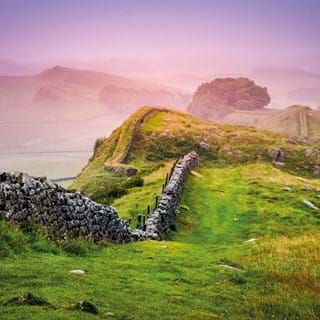
Tunisia
Tunisia is a North African country with borders along the Mediterranean Sea and Sahara Desert. In the capital Tunis, the Bardo Museum has archaeological exhibits including Roman mosaics and Islamic art. Tunis' medina quarter includes the massive Al-Zaytuna Mosque and a bustling souk. To the east, the site of ancient Carthage encompasses the Antonine Baths and other ruins, plus artefacts at the Carthage National Museum.
Tunisia’s Mediterranean Sea coastline and strategic location have drawn conquerors and visitors over the ages. Its easy access to the Sahara has brought its people into contact with the inhabitants of the African interior.
Tunisia’s culture is highly diverse, on some level due to long periods of Ottoman and then French rule but also because populations of Jews and Christians for centuries have lived among a Muslim majority. Tunis, marries ancient Arab souks and mosques and modern-style office buildings into one of the most handsome and lively cities in the region.
From bustling cities, vibrant beach resorts, grand ancient ruins to the vast rolling dunes of the Sahara Desert Tunisia encapsulates everything that is enticing about North Africa.
Upcoming Departures
Visa:
UK: Not required for a stay of up to 3 months in duration.
USA: Not required for a stay of up to 90 days in duration.
Currency:
Tunisian Dinar.
Packing advice:
The dress code is relaxed. Many Tunisians wear traditional dress as well as western clothing and up-to-date fashion styles. When traveling to more traditional areas and holy sites, modest dress is recommended – think covering the shoulders for women and knee-length pants or dresses. Women will only need scarves when visiting a mosque.
Cultural differences:
Tunisia is a Muslim country, and it's important to respect the local tradition, customs and religion. During the holy month of Ramadan or when near religious areas, be mindful not to offend the locals by eating and drinking in front of them.
The southern desert areas are quite traditional, but the northern beach resorts (where most travellers go) are more cosmopolitan, and have a fairly European style, so you can be a little more relaxed with how you dress, but it's still important to dress modestly if you're a woman.
Driving in Tunisia can be an interesting experience. Drivers take the view that road rules, traffic signs and traffic signals are more suggestions than rules and bear little relation to driving. Drivers tend to bypass regulations, even when police are present. Pedestrians have the right of way, which drivers generally ignore. Don't expect drivers to stop at pedestrian crossings or stop lights, and proceed with caution on the highways.
Language:
Arabic and French.
Tipping:
Wages in Tunisia are fairly low, but there is no culture of expected tipping. Therefore, you should tip only if you receive good service and how much you tip is entirely up to you, as any tip will be appreciated. Use a 5-15% tip as a guideline or round up the bill to the nearest 10 dinar. Andante Travels will take care of gratuities to restaurant staff, local guides and drivers.
 US
US
 GB
GB



